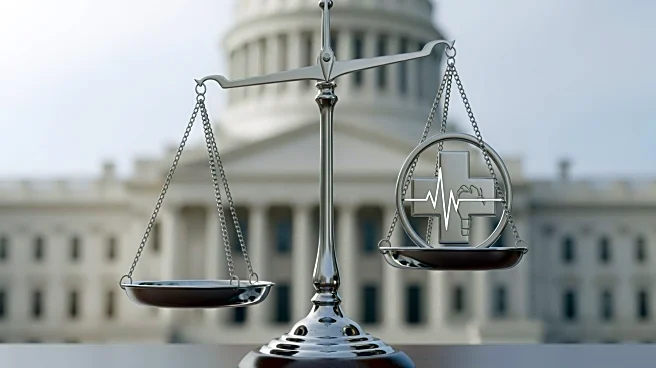What's Happening?
Senate Minority Leader Chuck Schumer has proposed a plan to end the ongoing U.S. government shutdown, which began on October 1. Schumer's proposal involves a clean resolution to provide short-term funding for government operations, coupled with a one-year
extension of enhanced tax credits under the Affordable Care Act (ACA). These tax credits are crucial for reducing health insurance costs on ACA marketplaces. Schumer's plan also suggests forming a bipartisan committee to negotiate long-term healthcare affordability reforms. However, Republicans have dismissed the proposal, maintaining their stance against negotiating healthcare costs until the government reopens. The Democratic demand for including ACA subsidies in the funding resolution has been a sticking point, preventing a Republican-backed clean resolution from passing in the Senate.
Why It's Important?
The government shutdown has significant implications for federal operations and employees, with many services halted and workers furloughed. Schumer's proposal aims to address healthcare affordability, a critical issue for many Americans, by extending ACA tax credits. The rejection by Republicans highlights the ongoing partisan divide over healthcare policy and government funding. The outcome of these negotiations could impact millions who rely on ACA subsidies for affordable health insurance. Additionally, the shutdown affects economic stability and public confidence in government functionality, with potential repercussions for upcoming elections and legislative priorities.
What's Next?
If Schumer's proposal gains traction, it could lead to renewed negotiations between Democrats and Republicans. The formation of a bipartisan committee could pave the way for long-term healthcare reforms. However, if the impasse continues, the government shutdown may persist, exacerbating its impact on federal employees and services. Political leaders may face increased pressure from constituents and stakeholders to reach a resolution. The situation remains fluid, with potential shifts in party strategies and public opinion influencing the path forward.















